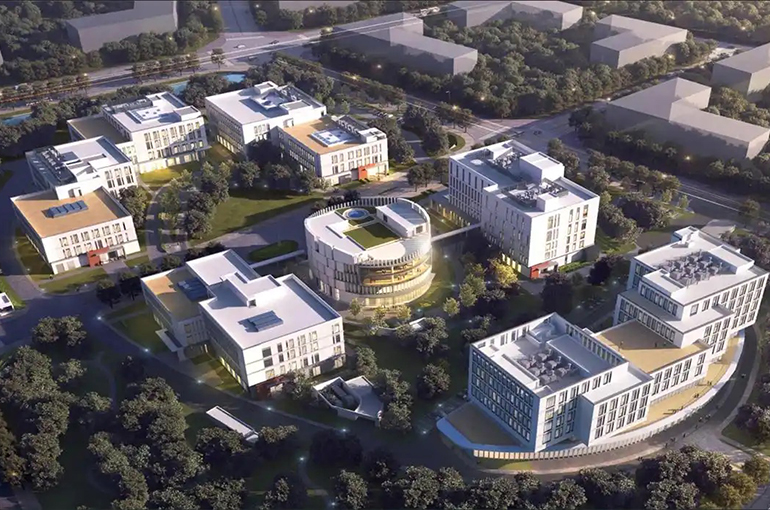(Yicai) July 31 — China’s first multimode trans-scale biomedical imaging facility, one of the country’s key scientific infrastructure projects, was built to generate a world-class original achievement in the next five to 10 years, according to a scientist.
The National Multimode Trans-Scale Biomedical Imaging Center will support scientific researchers in critical pathological studies, promote the development of China’s biomedicine sector, and incubate about 20 high-tech startups, including one or two unicorns in the next five to 10 years, Chen Liangyi, deputy director of the National Biomedical Imaging Center of Peking University, told Yicai in an interview.
The National Multimode Trans-Scale Biomedical Imaging Center passed national acceptance in March and recently began trial operation, opening to scientific researchers nationwide. It was jointly initiated by Peking University and the Institute of Biophysics, with a total investment of over CNY1.7 billion (USD237 million).
So far, the center has already attracted 29 major research projects in digital life sciences, Chen noted, adding that its research efforts will focus on China’s strategic directions, including brain science and tumor diagnosis and treatment.
The core technology of the National Multimode Trans-Scale Biomedical Imaging Center is a miniaturized two-photon microscope, which weighs only 2.2 grams. Compared to conventional microscopes that can only observe anesthetized or restrained animals, miniaturized microscopes can be attached to the head of active mice to conduct real-time brain observations, Chen explained.
A baby has more than 10 million neurons, which is as many as there are celestial bodies in the Milky Way, Chen said. Therefore, human beings need super powerful observation devices both on the macroscopic and microscopic levels, just as astronomical telescopes are required to study celestial activities.
The National Multimode Trans-Scale Biomedical Imaging Center can support national scientific research projects aiming at enhancing the efficiency of basic and clinical research, boost the upgrading of life sciences research paradigms, and cultivate talents in emerging sectors, according to Chen.
Mankind still cannot figure out the pathogenesis of various complex diseases, such as rare genetic illnesses, diabetes, tumors, and Alzheimer’s Disease, and is unable to find suitable targets for drug treatment, mainly because there are huge technological challenges in the cross-scale analysis of life activities, he pointed out.
Despite that, scientific researchers have accomplished breakthroughs in some rare diseases and regarding neural mechanisms of medicine addiction in the brain through imaging technology for living cells with super-high resolution in recent years.
Editors: Dou Shicong, Futura Costaglione
